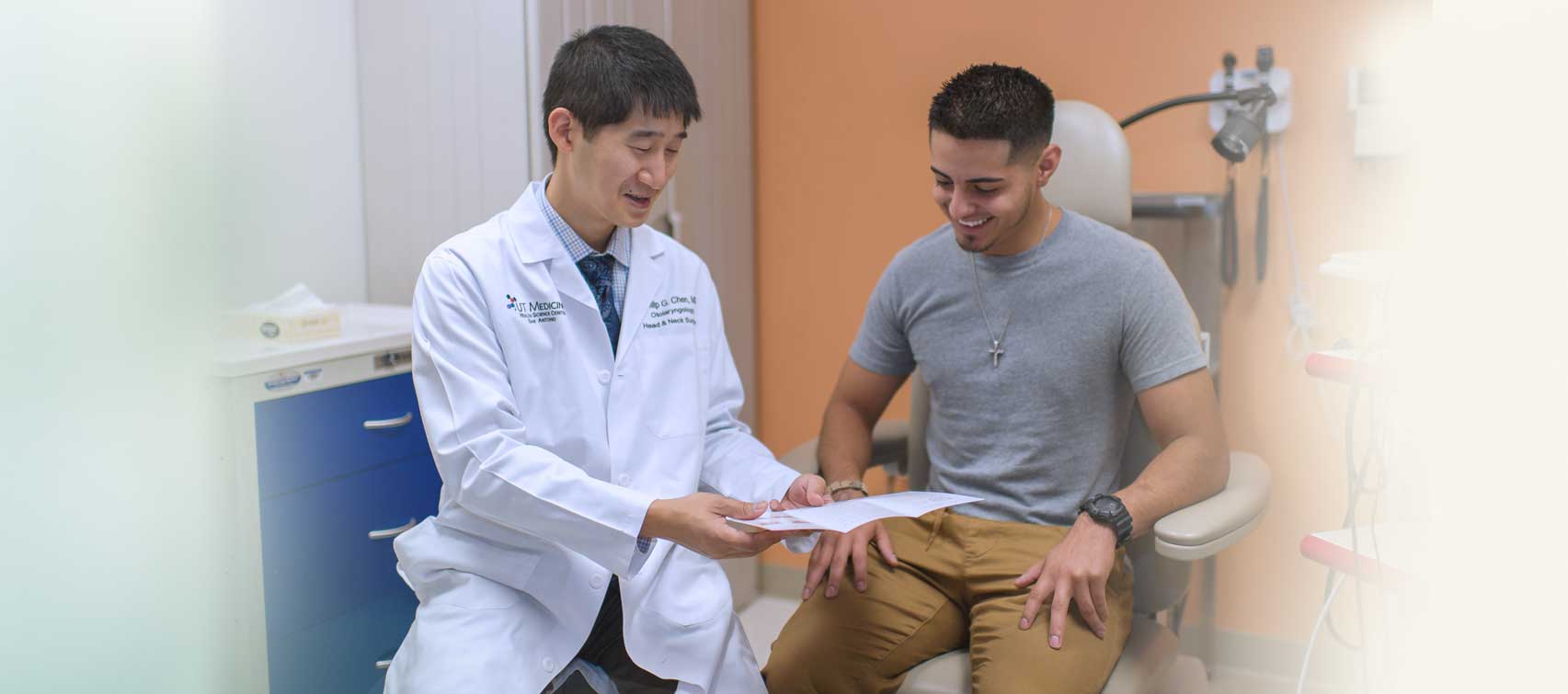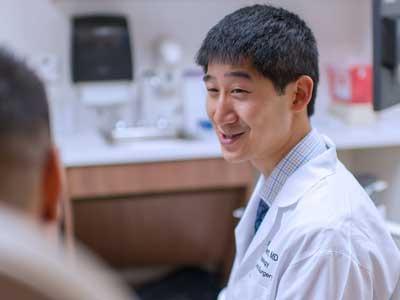Of all the things that make this part of Texas noteworthy, our problematic sinuses are probably not what we’d like to dwell upon.
Dr. Phillip Chen, M.D., rhinologist in the School of Medicine's faculty clinical practice, UT Health San Antonio, and an assistant professor in the Department of Otolaryngology at the Health Science Center, is eager to bring relief to sinus sufferers in the area. After a year on the job here, he has found it’s a challenge he more than enjoys.
“For a population of 2-plus million people, to be the only person dealing with very advanced sinonasal disease, keeps it interesting for me and keeps it fun. Hopefully I am also able to provide the community a good service,” he said.
After five years of otolaryngology head and neck surgery (ENT or ear, nose and throat) residency at the University of Virginia and completing an advanced endoscopic sinus and anterior skull base surgery fellowship at the University of Adelaide in Adelaide, Australia, Dr. Chen arrived in San Antonio knowing there were no other fellowship-trained rhinologists in San Antonio who offer care to non-military patients.
“There are other people who do very good sinus work in the community,” Dr. Chen said. “I thought I could help them out when they needed it, and we could have a great collaboration between the university and the local physicians. I think we have accomplished that.”
Filling a gap
UT Health’s Department of Otolaryngology also did not have anyone dedicated to sinus disease until Dr. Chen arrived.
“It was a great opportunity for me to fill that role and really focus my practice in the area of sinus disease,” Dr. Chen explained. He believes that being able to grow a practice in South Texas, an area of the country that has a lot of sinus disease patients, will bring him many challenges. He also knows that he will be learning a great deal by seeing such a variation in the significance of disease that’s here.
Why otolaryngology?
In the field of otolaryngology, doctors treat patients of all ages. The field affords lots of opportunities to perform various types of surgeries, from neck cases and facial fractures to working under a microscope for ear surgery.
“I think it’s very rewarding that we get all of those various age groups,” Dr. Chen said. “The fun thing about that is you really get to know a patient. You not only treat their medical problems, but really get to know them as a person.”
Many of Dr. Chen’s patients are in their 40s and 50s: “They’re still active, they have families, they’re working, they’re involved in their community. It affects their ability to do what they want to do when they can’t breathe well, when they have such bad headaches. Being able to get them feeling better and productive, that’s rewarding to me.”
“It feels good when you’re able to help someone be productive and do what they want to do,” he said.
Research possibilities abound
A number of research questions remain in rhinology.
“It’s an area of research that’s very exciting,” Dr. Chen explained. “We don’t know why people get sinusitis. We don’t know why people have allergies and why it affects their noses so much. One of the reasons that I chose to go into rhinology and treatment of sinus disease is because it’s a field that has a lot to learn and a lot on the horizon still.”
“I spent a year doing revision cases,” Dr. Chen said. “You learn tricks of the trade that help you to be a safer and more thorough surgeon.”
Most patients have one surgery and they never need any further intervention. Dr. Chen cares for the patients who, for whatever reason, suffer from a more aggressive form of the disease and must undergo more surgery.
“Each time you do another surgery it gets harder, because the typical landmarks we use in surgery are not there anymore.”
It’s a challenge for some, but because of the relationships he has built, Dr. Chen’s patients know he is with them for the long haul.

